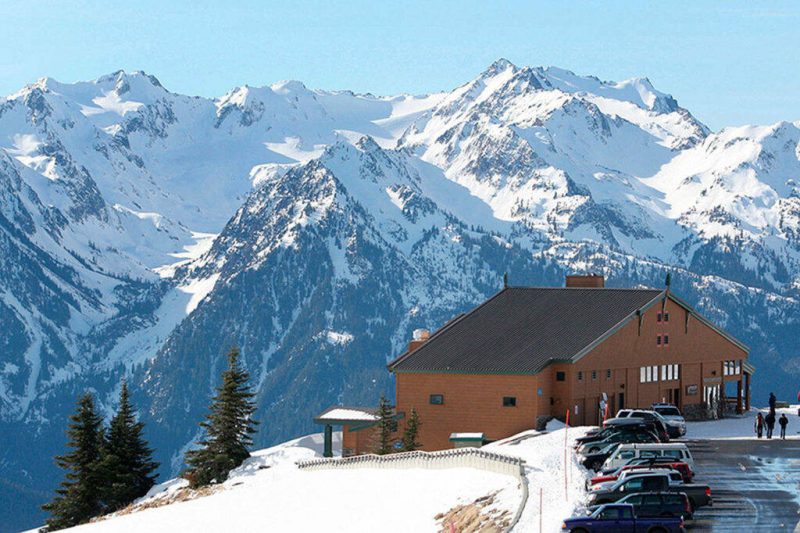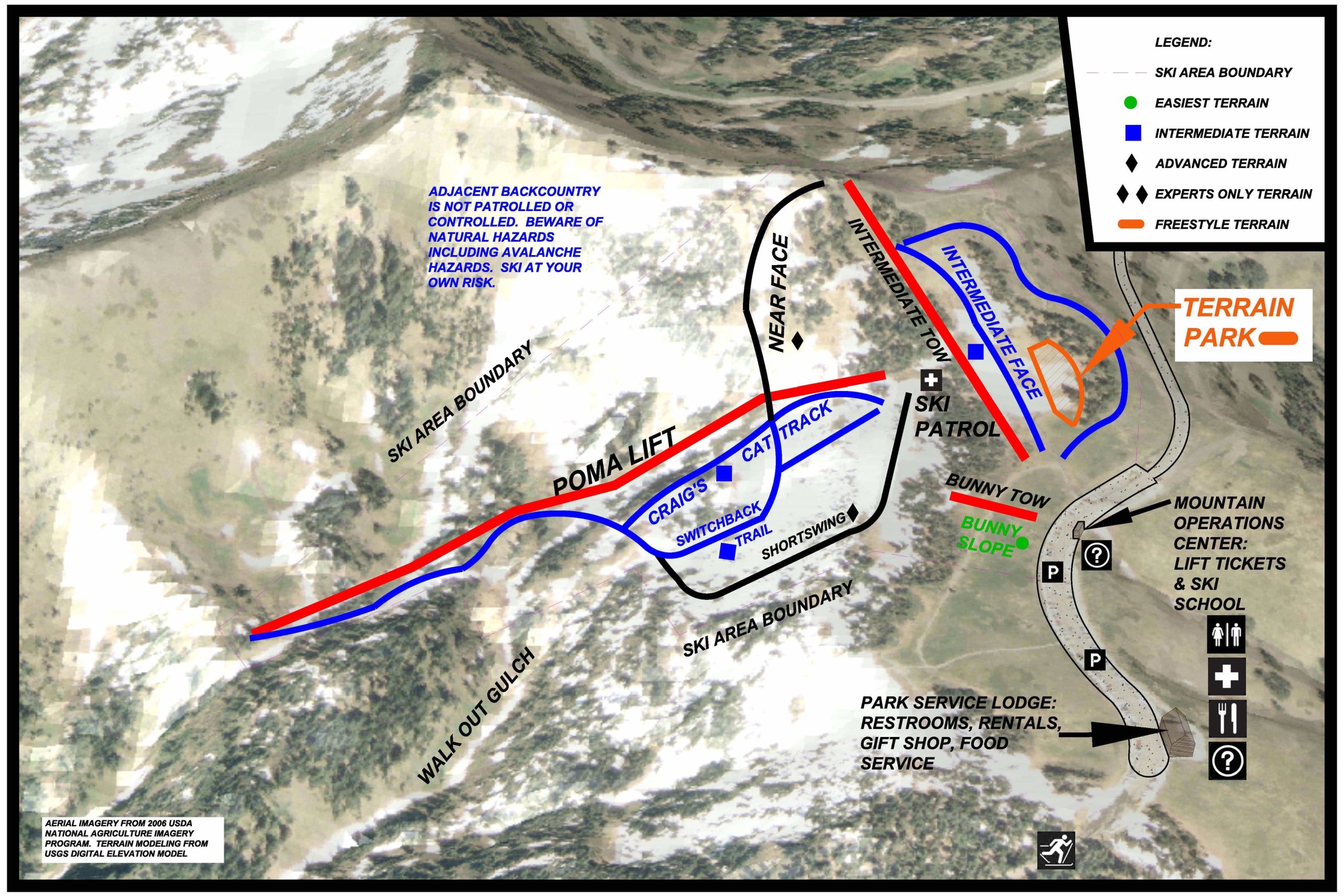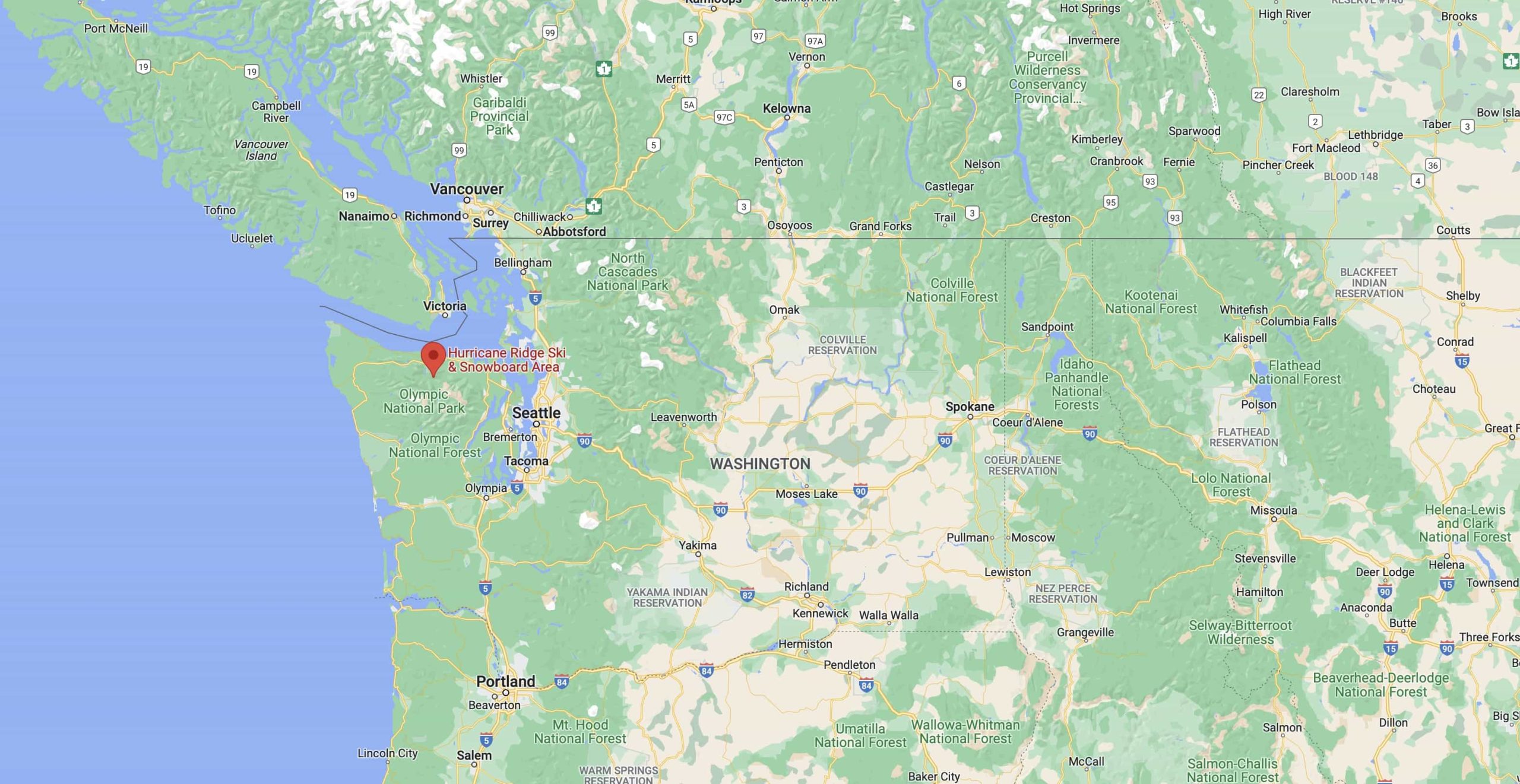
After a year full of challenges, Olympic National Park in Washington State is excited to announce the Hurricane Ridge Road and recreation area will open for the winter season on the day after Thanksgiving.
“Park employees, contractors, and partners have worked tirelessly to get this done. Thanks to their monumental efforts, everyone will be able to experience a full winter season on the Ridge.”
– Olympic National Park Superintendent Sula Jacobs
During the current closure, work crews have efficiently tackled multiple construction projects. A restroom trailer and visitor contact station have been installed and connected to utilities. By the end of the closure, crews will have completed utility trenching and the demolition and removal of the Hurricane Ridge Day Lodge debris.
Hurricane Ridge in Winter
Weather permitting, Hurricane Ridge Road is scheduled to be open Fridays, Saturdays, and Sundays through March 31, 2024 (closed December 25, Christmas Day). The road will also be open from December 26 through January 1, January 15, and February 19.
Temporary trailers will provide restrooms and a visitor contact station. The contact station will be staffed intermittently Fridays through Sundays. Visitors should be prepared to use their vehicles as a warming area and pack extra food, water, dry clothing, and blankets or sleeping bags. There will be no indoor warming area, food service, potable water, or gear rentals available.
Hurricane Ridge Road will open at 9:00 am, weather permitting. The road will close to uphill traffic at 4:00 pm, and all vehicles must exit the Heart O’ the Hills entrance station by 5:00 pm.
Winter storms can close or delay the opening of the Hurricane Ridge Road; strong winds and sudden blizzard conditions are not uncommon. Road and weather updates will be available on the Road & Weather line – (360) 565-3131 – and the park’s website – Alerts & Conditions – Olympic National Park (U.S. National Park Service) (nps.gov).
Hurricane Ridge Road closes temporarily when the parking lot is full. Additional vehicles will be admitted as space becomes available. Visitors are encouraged to park efficiently to maximize parking space.
During the winter season, all vehicles, including those with four-wheel drive, will be required to carry tire chains when traveling above the Heart O’ the Hills entrance station.
Find more information at nps.gov/olym/planyourvisit/hurricane-ridge-in-winter.htm.
Cross-country Skiing and Snowshoeing
Opportunities for cross-country skiers and snowshoers range from open, level meadows near the visitor center to extreme terrain in the wilderness backcountry. Anyone skiing or snowshoeing beyond the immediate Hurricane Ridge area should be prepared for steep terrain and the possibility of avalanches.
Due to risks posed by wildfire-damaged trees, Obstruction Point Road is closed to skiing and snowshoeing from Waterhole to the Obstruction Point Trailhead.
Information about ski and snowshoe routes is available at park visitor centers, in the park newspaper, the Bugler, or on the website – Cross-country Skiing & Snowshoeing Routes – Olympic National Park (U.S. National Park Service) (nps.gov).

Avalanche Information
Up-to-date information about weather and avalanche risk is available on the Northwest Avalanche Center’s website – nwac.us. Anyone planning to venture beyond the maintained downhill ski area, or the immediate Hurricane Ridge area, should always check the avalanche forecast.
Snowshoe with a Ranger
As soon as there is enough snow, rangers will offer snowshoe walks at 1:30 pm on Saturdays and Sundays. These walks last 1.5 hours, cover less than a mile, and include 130 feet of elevation gain. Snowshoes and instructions are provided. The group will be limited to the first 15 participants. Interested visitors should meet at the visitor contact station in the Hurricane Ridge parking area at 1:00 pm on the day of the walk. Walks may be canceled at any time due to operational priorities or safety concerns. To check the status of the program or request specific accommodations, please call (360) 565-3130.
Beyond Hurricane Ridge
Olympic National Park offers many lowland options for winter recreation. Visitors can stroll through rainforests, search for fish in icy streams, and watch birds drift over the stormy sea. Many areas of the park remain open year-round, but some facilities and park roads close for the winter season.

Park Roads and Campgrounds
Deer Park Road, Obstruction Point Road, and Hurricane Hill Road are closed to vehicles for the winter season. Other park roads may close with short notice due to road and weather conditions. Call the Road & Weather line at (360) 565-3131 to check road status information.
At this time of year, some campgrounds are closed, while others offer limited amenities. Check the status of campgrounds on the park website – Camping – Olympic National Park (U.S. National Park Service) (nps.gov).
Please store all food and scented items in your vehicle or an animal-proof food storage locker when not in use. Do not leave food, dishes, garbage, or other smelly items unattended at your campsite.
Pacific Coast
Kalaloch, Mora, and Ozette—Olympic National Park’s road-accessible coastal destinations—are open year-round, weather permitting. Visitors should check the National Oceanic and Atmospheric Administration’s tide predictions before planning any coastal trip – NOAA Tides and Currents. Storms can make beach hiking hazardous and even impossible due to large waves. Coastal streams that are normally easy to cross can be waist-deep or deeper during storms.
Rainforests
Throughout the winter season, rain falls frequently in the Hoh, Queets, and Quinault Valleys, contributing to their yearly average precipitation range of 100-170 inches. This water produces lush, green forests blanketed with mosses. Check the park website to learn more about trails and recreational opportunities in these otherworldly rainforests.
Recreate Responsibly
Whether you’re planning to backpack, snowshoe, ski, or take a day hike, please remember to Recreate Responsibly! We encourage you to follow Leave No Trace principles when you visit.
- Know before you go. Visit the park website to get the latest information on park conditions and facilities.
- Know your limits. Pay attention to how you are feeling on the trail and changes in weather conditions. If in doubt, it’s best to head home and return another day.
- Keep it with you. If you brought it, take it with you. Trash pickup and restroom facilities may be limited in many park areas.
- Keep it inclusive. Be an active part of making our nation’s parks and public lands safe and welcoming for all identities and abilities.
